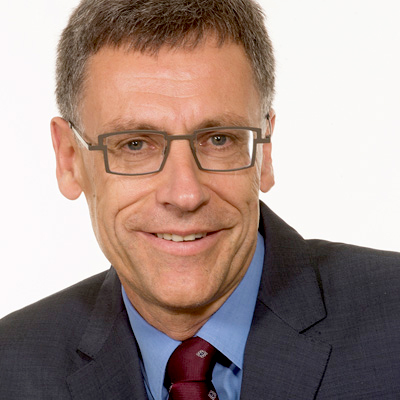
Bruno Holthof
Chief executive
Oxford University Hospitals NHS Foundation Trust
Bruno holds a medical degree, a PhD in Health Economics and an MBA. Before joining Oxford University Hospitals Trust as a chief executive, Bruno was a partner at McKinsey and Company for 15 years and was the chief executive of the Belgian healthcare system. Alongside his chief executive duties, Bruno is also a board member of the European care home operator, Armonea.
Q: Was there a particular job, opportunity or experience which convinced you to apply for the chief executive role?
After a career of 14 years in management consulting, the opportunity to implement recommendations rather than just develop recommendations was the key attraction for me. As a partner in McKinsey you deal with complex issues and try to find ways to address those, but you’re not responsible or accountable for delivering the results that are required. As a chief executive you are accountable for the success of the whole organisation. So that difference between the intellectual contribution as a management consultant versus being able to do it as a chief executive was the key motivation. An additional factor was that I was born in Antwerp, and it meant being able to have an impact on the health system where I was born.
Q: How does your clinical background help you to perform effectively as a trust chief executive?
My PhD was in health economics looking at outcome measures, and the key thesis was that high quality is associated with more efficient, lower cost care, so high quality and lower cost go hand in hand. It is still one of my driving beliefs and it is also the way to engage clinicians. Clinicians want to deliver high quality care – they are often not so interested in the financial consequences. But high quality care is more reliable care and in most cases is also more efficient care. Clinical executives have more of an affinity for that than if you don’t come from a clinical background. Medicine is complex, and hospitals are very complex organisations, so people without a clinical background often feel more comfortable just looking at the financial numbers, and then it becomes a financially driven organisation, and that doesn’t usually work very well with the clinicians. So it’s making the link - that high quality means you can also do very well financially.
Clinicians want to deliver high quality care – they are often not so interested in the financial consequences. But high quality care is more reliable care and in most cases is also more efficient care. Clinical executives have more of an affinity for that than if you don’t come from a clinical background.
Q: What do you think is more important for your performance as a trust chief executive?
Certainly the person you are. My belief is that having a clinical background helps but it is not sufficient, and as a leader of complex healthcare organisations, the person and the leadership style is very important. Healthcare organisations require a very collaborative, consensus driven approach and require a lot of bottom-up input and buy-in from clinical teams, which comes from an inclusive and more facilitative leadership style rather than a top-down directive style.
Q: "If I knew then what I know now…" - your advice for clinicians thinking about stepping in to a chief executive role?
Get diverse experiences, and diverse could mean different organisations, different countries, different roles, is important. Try to embrace different opportunities to learn from different healthcare organisations because you’ll be more creative when working within the constraints of your local healthcare system and try to solve the problems.
My belief is that having a clinical background helps but it is not sufficient, and as a leader of complex healthcare organisations, the person and the leadership style is very important.
Q: How has training and working abroad supported you in your role as a trust chief executive in the NHS?
I’ve worked as a chief executive in another healthcare organisation, and as a management consultant in a number of healthcare systems around the world and what I’ve learnt is that the problems are very similar – to improve outcomes for patients, with the most efficient use of resources. That is the main challenge in most healthcare systems, and the solutions lie through clinical engagement and convincing teams that they can improve outcomes and be more efficient with the use of resources. What helps having worked in different healthcare systems is to see that the solutions are different from system to system. It is great to see that the NHS looks for best practices in the UK and internationally, such as the US, and tries to adopt them across the health service.
